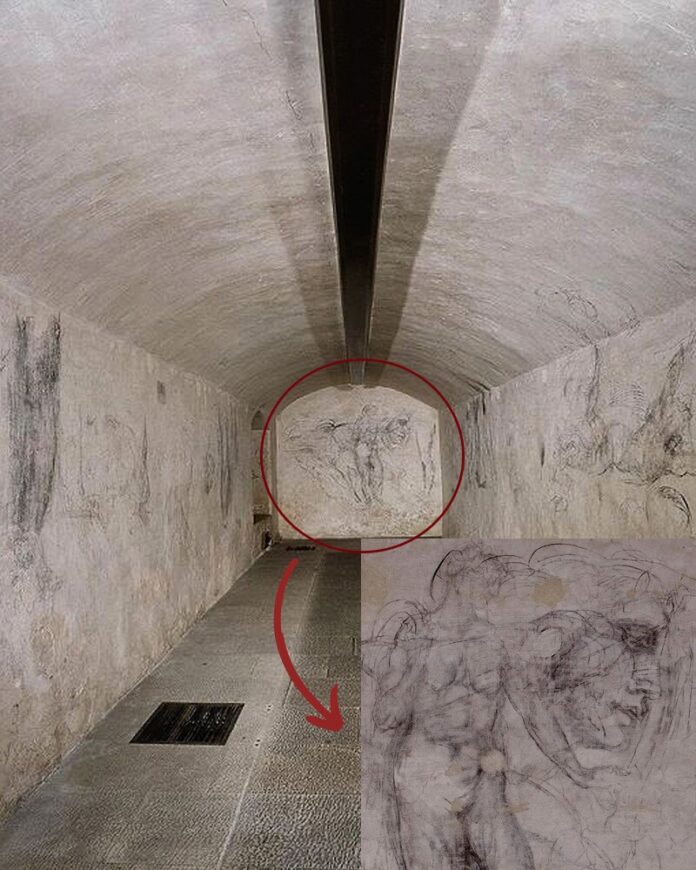Michelangelo Buonarroti, the genius behind masterpieces like the statue of David and the Sistine Chapel’s ceiling, has left behind an indelible mark on art history. Yet, one of his lesser-known legacies, a hidden room in Florence filled with his sketches, is now stepping into the spotlight. This secret chamber, concealed beneath the Medici Chapels in the Basilica of San Lorenzo, is believed to have been Michelangelo’s refuge during a tumultuous period in his life. After centuries of obscurity, the room is finally open to the public, offering a unique glimpse into the mind of one of the greatest artists of the Renaissance.
The Discovery of the Secret Room
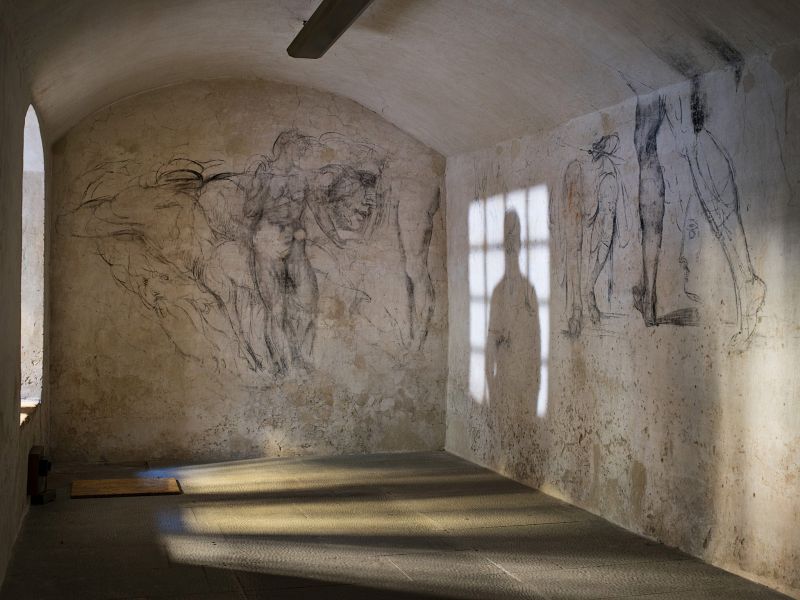
The secret chamber, located in the heart of Florence, was uncovered in 1975 by Paolo Dal Poggetto, the then-director of the Medici Chapels. While searching for a new exit for the museum, Dal Poggetto stumbled upon a trapdoor beneath a wardrobe, leading to a small, forgotten room measuring 10 meters long and 3 meters wide. This room, once used to store coal, had been sealed off for decades, concealing a treasure trove of charcoal and chalk drawings on its walls.
Michelangelo’s Hideaway
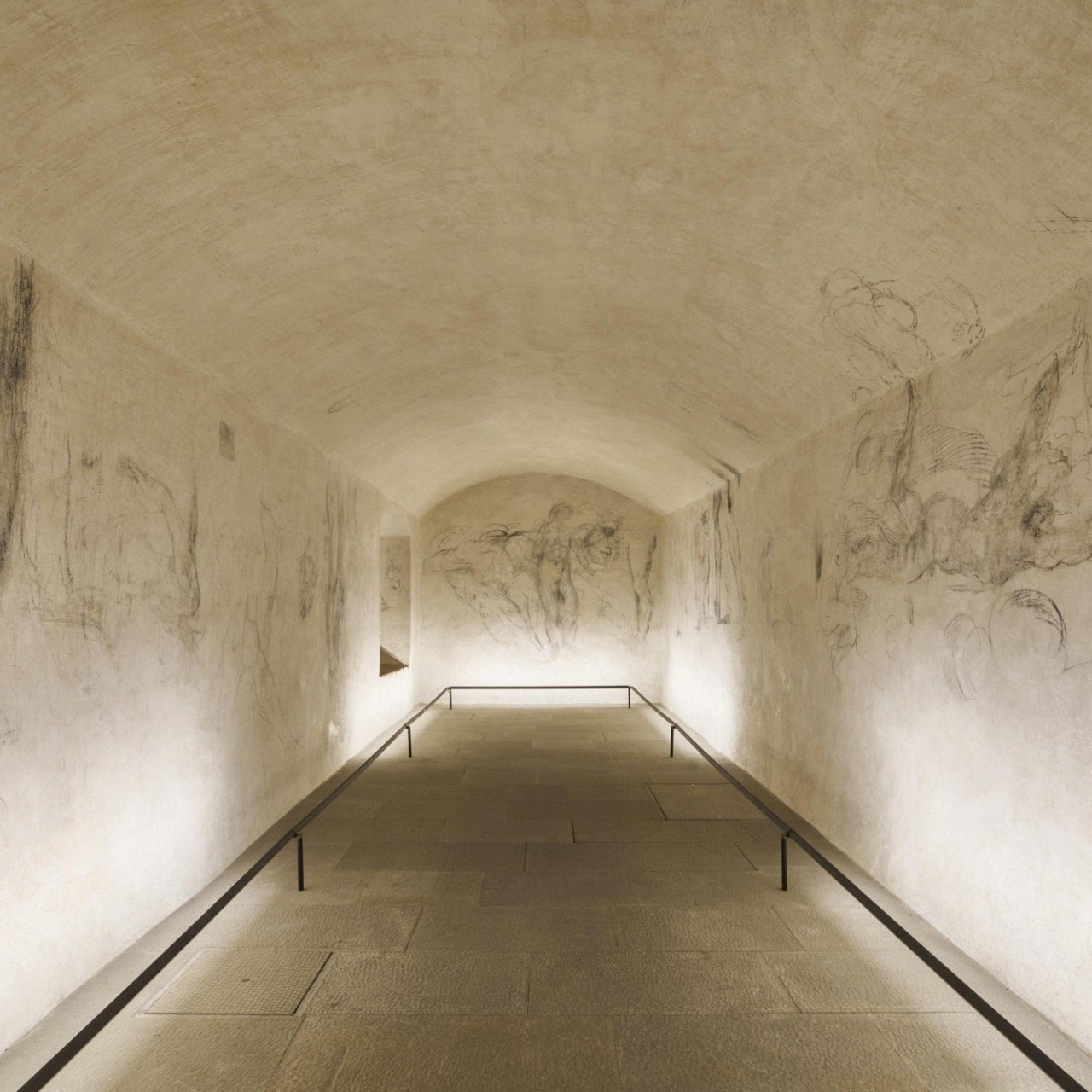
Michelangelo is believed to have sought refuge in this hidden room in 1530, during a time when his life was in grave danger. After falling out of favor with the powerful Medici family, particularly Pope Clement VII, Michelangelo was forced into hiding to evade a death sentence. He spent approximately two months in the tiny chamber, sketching dozens of drawings that echo his previous works. Among these sketches are a drawing of Leda and the Swan and figures reminiscent of the nude forms that adorn the Sistine Chapel.
A Catalogue of Memories
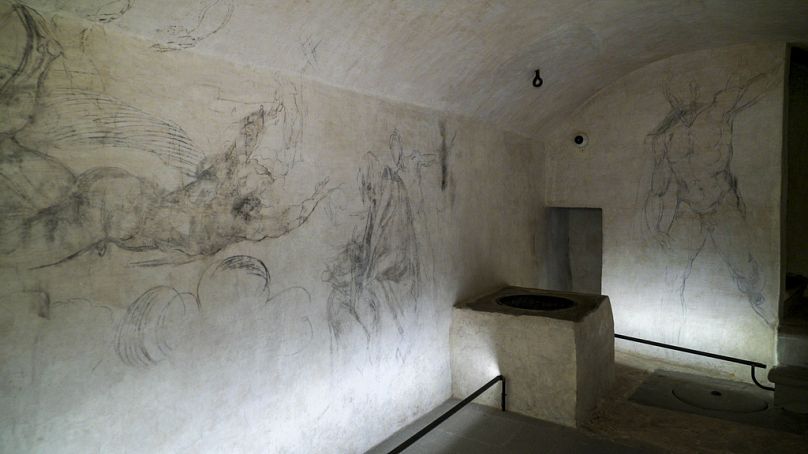
Paola D’Agostino, the current director of the Bargello Museums, describes the room as a sort of personal catalogue for Michelangelo, filled with sketches that reflect his artistic journey. She notes that the artist seemed to be revisiting his past works, as if uncertain whether he would emerge from the chamber alive. The drawings include figures similar to those in his David statue and the Medici family tomb, which Michelangelo had created in the New Sacristy directly above the chamber.
The Artist’s Narrow Escape
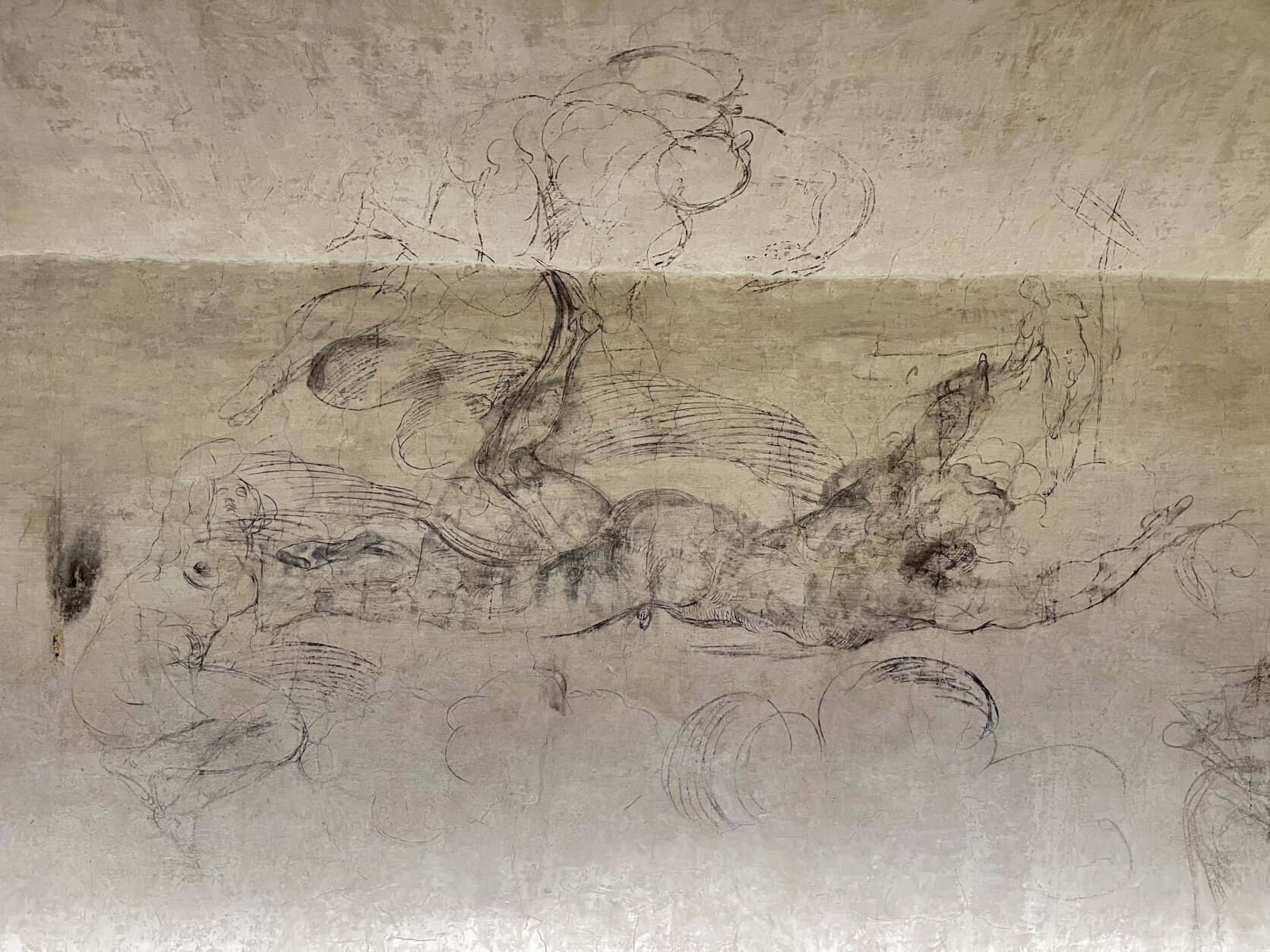
Michelangelo’s hiding place was eventually discovered by Giovan Battista Figiovanni, the prior of the Basilica of San Lorenzo. Despite the precariousness of his situation, Michelangelo was ultimately pardoned by the Medicis, and Pope Clement VII lifted the death sentence. This allowed the artist to continue his work, most notably on the Sistine Chapel and the Medici family tomb. In 1534, Michelangelo left Florence for Rome, where he would spend the remainder of his life.
Opening to the Public
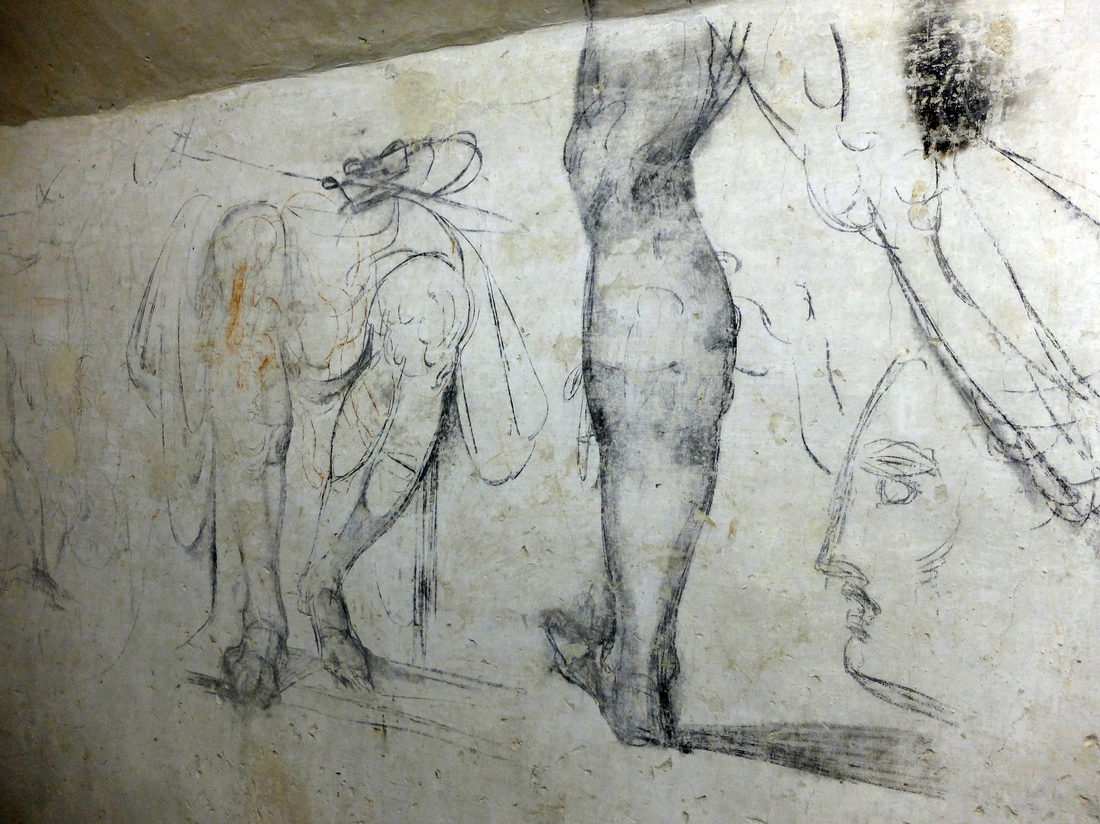
After centuries of remaining hidden, the chamber will officially open to the public on November 15th. However, access will be highly restricted, with only four visitors allowed at a time to preserve the delicate sketches and the integrity of the space. The preparation of the room for public viewing has been a meticulous process, with D’Agostino describing it as “time-consuming, constant, and painstaking.” Despite the challenges, she hopes that visitors will be as captivated by the room as she is, noting that even after numerous visits, she remains mesmerized by the sketches.
Conclusion
The unveiling of Michelangelo’s secret room in Florence offers a rare and intimate glimpse into the life of one of history’s greatest artists. This hidden chamber, once a sanctuary for Michelangelo during a perilous time, now stands as a testament to his enduring genius. As the room opens its doors to the public, it invites art lovers and historians alike to step back in time and experience the private world of Michelangelo Buonarroti, where every sketch tells a story of survival, memory, and artistic brilliance.
Video
